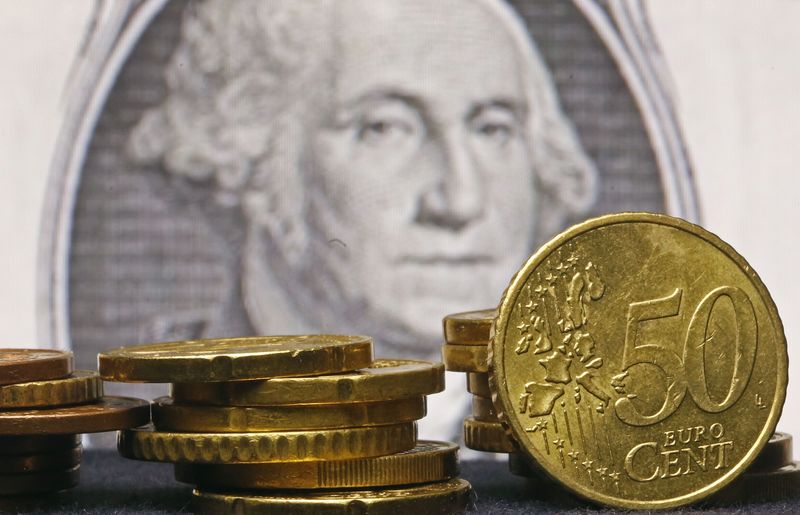Investing.com -- The U.S. dollar resumed its steady ascent against the euro on Friday, amid optimistic economic data as the pair continued its move back toward parity.
EUR/USD dove 0.0059 or 0.55% to slip under 1.06 at 1.059 – its lowest level since Mar. 18. On that date, the pair gained more than 2% after relatively dovish comments from Federal Reserve chair Janet Yellen on slow GDP and wage growth fueled speculation that a looming interest-rate hike could be delayed.
EUR/USD plunged to a daily-low of 1.0568 in European afternoon trading before paring some of its losses during the U.S. morning trading session.
The pair likely gained support at 1.05, the low on Mar. 13 and resistance at $1.12, the high from Mar. 2. Earlier this week, the euro moved above 1.10 against the dollar for the first time since Mar. 25 following a disappointing U.S. monthly jobs report for the month of March.
It has declined sharply since then and finished the week down more than 3.4% down against its U.S. counterpart. For the year as a whole, the pair is down roughly 12% as the start of a €60 million a month quantitative easing program coincided with expectations that the Fed appeared ready to raise rates.
Although Yellen's comments last month may have slowed the dollar's appreciation, many analysts believe that parity is inevitable. Last month, analysts from Goldman Sachs (NYSE:GS) said they expect the euro to reach $0.95 against the dollar by March, 2016 and to continue downward to $0.80 by the end of 2017.
The U.S. Bureau of Labor Statistics (BLS) said on Friday that U.S. import prices fell 0.3% in March, marking the eighth consecutive monthly decline. More critically, prices for domestic imports fell 10.5% on a year-over-year basis from March, 2014, representing the steepest decline since 2009.
A stronger dollar is considered to be a key factor in pulling down import prices. The U.S. Dollar Index, which measures the strength of the greenback versus a basket of six other major currencies, ticked upward 0.43% on Friday to 99.68. The index is approximately 20% higher since last year at this time.
Next week, investors will await the release of the BLS' Consumer Price Index for the month of February on Friday. In January, the CPI-U for All Urban Consumers fell by 0.7% on a seasonally-adjusted basis and 0.1% over the last year, marking the first 12-month negative change since October, 2009. The CPI is the most widely used monthly indicator of inflation. Other key reports on U.S manufacturing and industrial production will be released early next week.
Also, the European Central Bank is expected to make key rate and monetary policy decisions at a Governing Council meeting on Wednesday. ECB president Mario Draghi is expected to make his first public comments on the euro zone's bond buying program at a press conference following the meeting.
Yields on U.S. 10-Year Treasuries fell slightly by 0.009 to 1.949, while yields on German 10-Year bunds ticked down 0.01 to 0.16.
